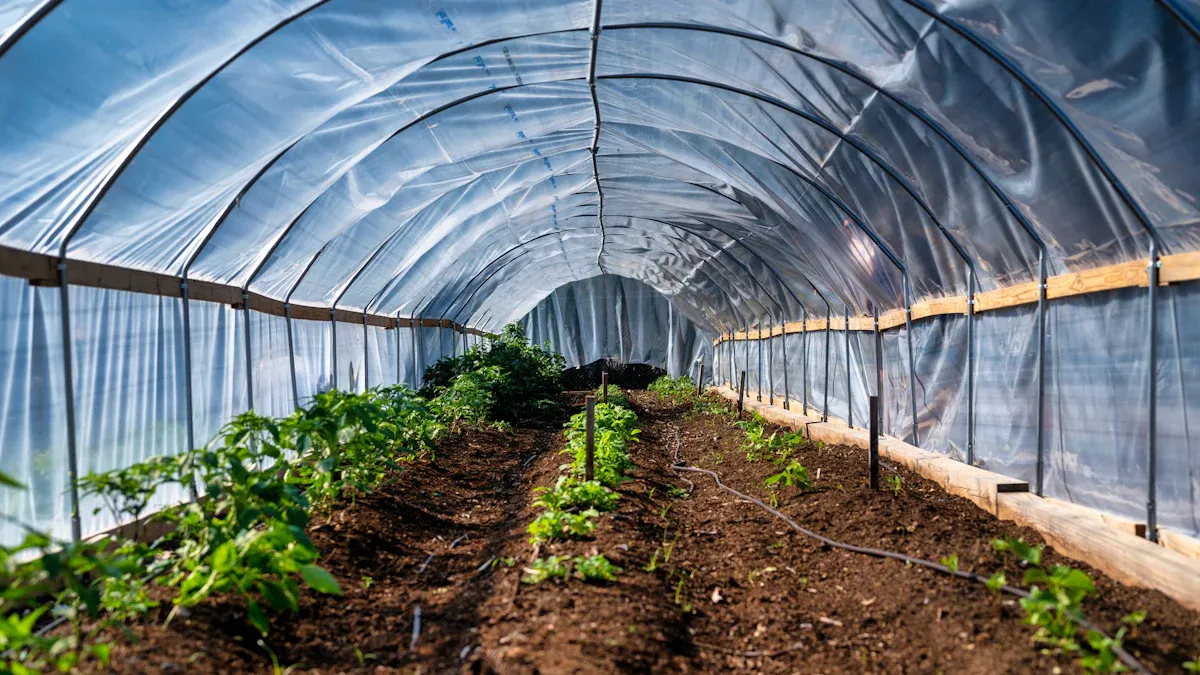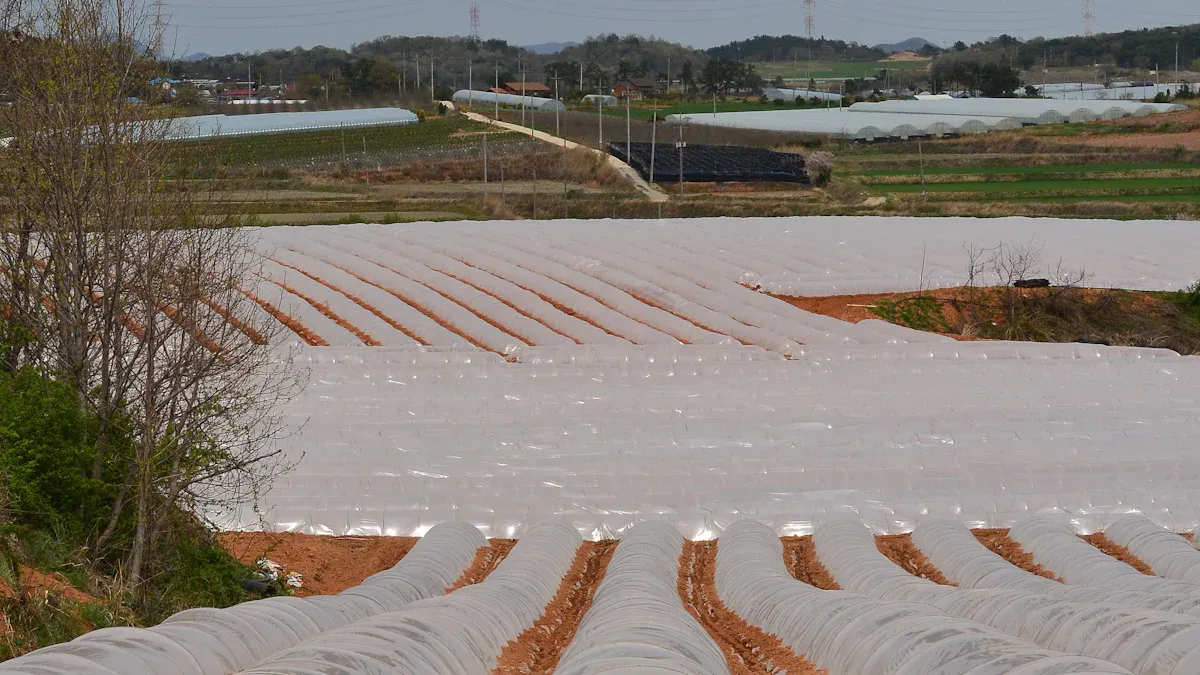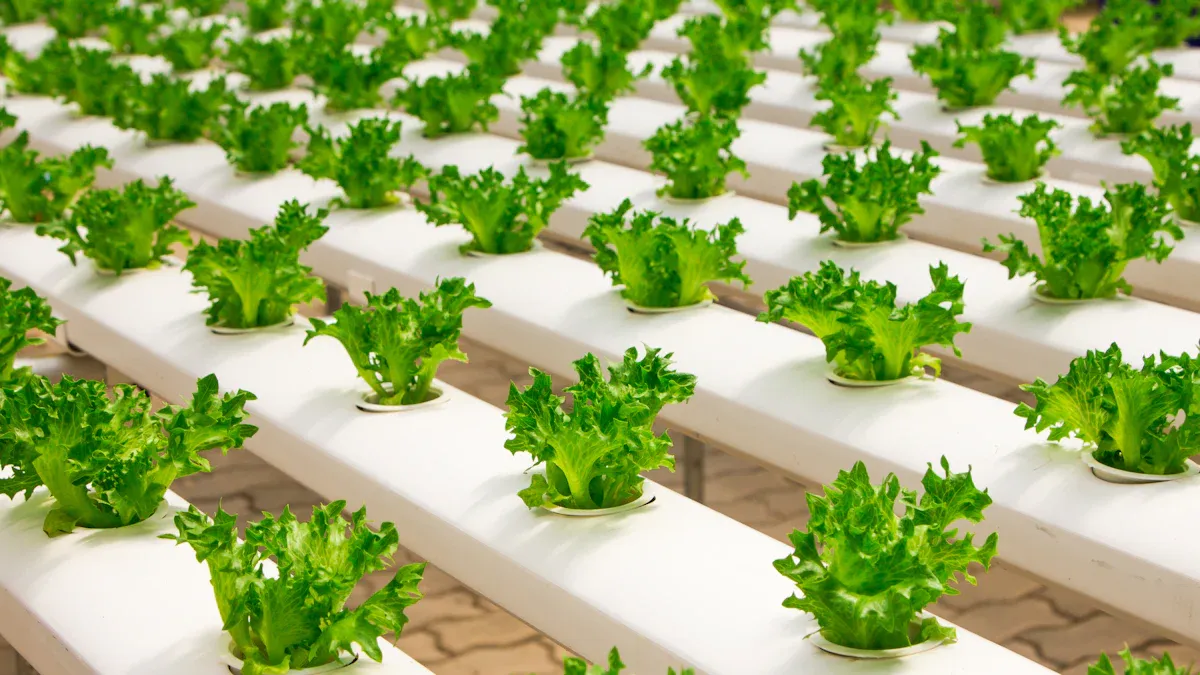
Durable plastics play a vital role in improving agricultural machinery components. You need these materials to withstand the demanding conditions of farming. Choosing the right solutions ensures better performance and longevity. Advanced materials can lead to weight reduction and fuel efficiency, which saves money and reduces environmental impact.
Plastic injection molding allows you to create reliable and precise components. This process ensures consistent quality, even for complex designs. With plastic injection moulding, you can produce parts that are both lightweight and strong. By leveraging plastics, you enhance your machinery’s efficiency and sustainability.

When selecting plastics for agricultural machinery components, you need to prioritize materials with properties that enhance performance and reliability. Plastics offer several advantages over traditional materials like metals.
By choosing engineered plastics, you gain design flexibility and durability, which are essential for agricultural machinery components. These materials allow you to create lightweight yet robust parts that improve machinery efficiency and reduce operating costs.
Agriculture exposes machinery components to harsh environmental conditions. Plastics must be able to endure these challenges to maintain their quality and functionality.
When selecting plastics, you should consider how environmental factors impact their durability. Advanced materials with stabilizers and protective coatings can help mitigate these effects, ensuring long-term reliability in agricultural applications.
Durable plastic solutions provide significant cost-effectiveness and manufacturing efficiency for agricultural machinery. They offer long-term value by reducing operational expenses and improving productivity.
By investing in durable plastics, you benefit from enhanced efficiency and sustainability. These materials not only reduce costs but also contribute to better resource management and environmental conservation.

Polyethylene (PE) is one of the most widely used plastics in agriculture. Its exceptional durability and corrosion resistance make it ideal for applications like greenhouse covers, mulch films, and irrigation systems. High-Density Polyethylene (HDPE), a type of PE, offers superior strength and recyclability. It resists impact, moisture, and mold, ensuring long-lasting performance in harsh agricultural environments.
PE also contributes to sustainable farming practices. Its durability reduces the need for frequent replacements, minimizing waste and resource use. Over 7 million metric tons of plastic films, including PE, are produced annually for agricultural purposes, with a growth rate of 7%. This highlights its importance in modern farming. By choosing PE, you benefit from enhanced performance and reduced maintenance, making it a cost-effective solution for heavy equipment manufacturing.
Polypropylene (PP) stands out for its versatility and strength. It is commonly used in plastic components in heavy equipment, such as storage bins, irrigation pipes, and protective covers. PP offers high-performance polymer materials that resist chemicals, UV radiation, and extreme temperatures. This makes it suitable for demanding agricultural conditions.
PP also provides design flexibility, allowing manufacturers to create lightweight yet durable parts. Its ability to withstand wear and tear ensures long-term reliability. Functional additives, such as antioxidants and light stabilizers, further enhance its quality by preventing oxidation and UV damage. These features make PP a reliable choice for industrial plastic applications in agriculture.
Acrylonitrile Butadiene Styrene (ABS) is known for its toughness and precision. It is widely used in plastic injection molding to create components that require high strength and dimensional accuracy. ABS is resistant to impact and chemicals, making it suitable for agricultural machinery parts like housings, panels, and fittings.
ABS also offers excellent design flexibility, enabling the production of complex shapes and intricate details. Its durability ensures that components can withstand the rigors of daily use in farming operations. By using ABS, you gain access to advanced materials that improve the quality and efficiency of your machinery.
When choosing a manufacturer, you should prioritize their expertise in plastic injection molding. This process is essential for creating high-quality plastic components in heavy equipment. Manufacturers with extensive experience can deliver precise and durable parts tailored to your agricultural needs.
Look for companies that specialize in advanced techniques like multi-cavity molds or overmolding. These methods improve production efficiency and ensure consistent quality. A skilled manufacturer also understands the importance of design flexibility. They can help you create complex shapes and lightweight parts without compromising strength.
You should also evaluate their ability to work with engineered plastics. These materials offer superior durability and performance in demanding agricultural environments. By partnering with an experienced manufacturer, you gain access to innovative solutions that enhance the efficiency of heavy equipment manufacturing.
Certifications and adherence to quality standards are critical indicators of a reliable manufacturer. You should verify if the company complies with international standards like ISO 9001 for quality management. This certification ensures that the manufacturer follows rigorous processes to deliver consistent and high-quality products.
In addition, check for certifications specific to plastic injection molding. These may include ISO 14001 for environmental management or ISO 45001 for occupational health and safety. Such certifications demonstrate the manufacturer’s commitment to sustainability practices and worker safety.
A reputable manufacturer will also conduct thorough quality checks at every stage of production. This includes testing for strength, durability, and precision. By choosing a certified manufacturer, you ensure that your plastic components meet the highest standards of quality and reliability.
Sustainability practices are becoming increasingly important in agriculture. You should consider manufacturers that prioritize eco-friendly methods in their production processes. These practices not only reduce environmental impact but also align with emerging trends in industrial plastic applications.
Manufacturers can implement sustainability practices by focusing on measurable metrics:
- Energy Consumption: Using renewable energy sources and optimizing energy efficiency.
- Water Usage: Reducing water footprints through recycling practices and wastewater management.
- Greenhouse Gas Emissions: Minimizing emissions across all production stages.
- Waste Production: Adopting efficient disposal methods and promoting material recycling.
By selecting a manufacturer committed to sustainability, you contribute to environmental conservation. These efforts also enhance the long-term value of your agricultural machinery by incorporating durable and eco-friendly plastics.
Choosing the right plastics for agricultural machinery ensures durability, efficiency, and sustainability. Materials like HDPE and ABS offer long-term value by reducing maintenance needs and improving performance. For example, farms in the southeastern United States using HDPE mulch films reported up to 25% higher crop yields and reduced water usage. These benefits highlight how durable agricultural equipment supports sustainable agricultural equipment practices.
To make informed decisions, consult manufacturers specializing in plastic injection molding. Their expertise ensures high-quality components tailored to your needs. Prioritize materials that reduce weight and improve fuel efficiency. By focusing on long-term benefits, you enhance productivity while minimizing environmental impact.
Durable plastics not only improve machinery performance but also contribute to global sustainability efforts.
Plastics are lightweight, corrosion-resistant, and durable. They reduce machinery weight, improving fuel efficiency. Unlike metals, plastics resist chemicals and moisture, making them ideal for harsh agricultural environments. You also save on maintenance costs due to their long lifespan.
Focus on your machinery's needs. For durability, choose HDPE. For versatility, use PP. If you need precision, ABS works best. Consider environmental factors like UV exposure and chemicals. Consult manufacturers for expert advice on material selection.
Yes, many plastics like HDPE are recyclable. Durable plastics reduce waste by lasting longer. Manufacturers also adopt eco-friendly practices, such as using renewable energy and recycling materials. Choosing sustainable plastics helps you minimize environmental impact.
Plastic injection molding ensures precision and consistency. It allows you to create complex shapes and lightweight parts without compromising strength. This process also reduces production errors, ensuring high-quality components for your agricultural machinery.
Yes, engineered plastics resist UV radiation, chemicals, and extreme temperatures. Additives like stabilizers enhance their durability. For example, UV-stabilized greenhouse films last up to three years, even under harsh sunlight. Choose materials designed for your specific environment.